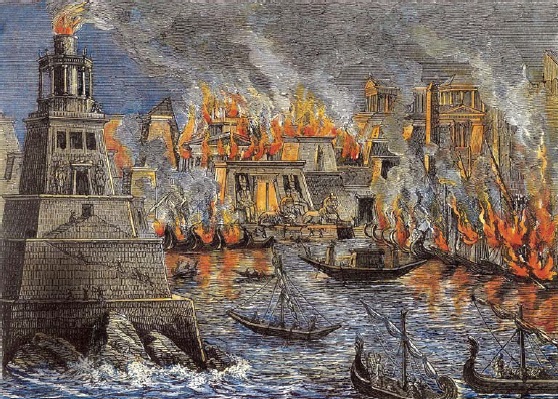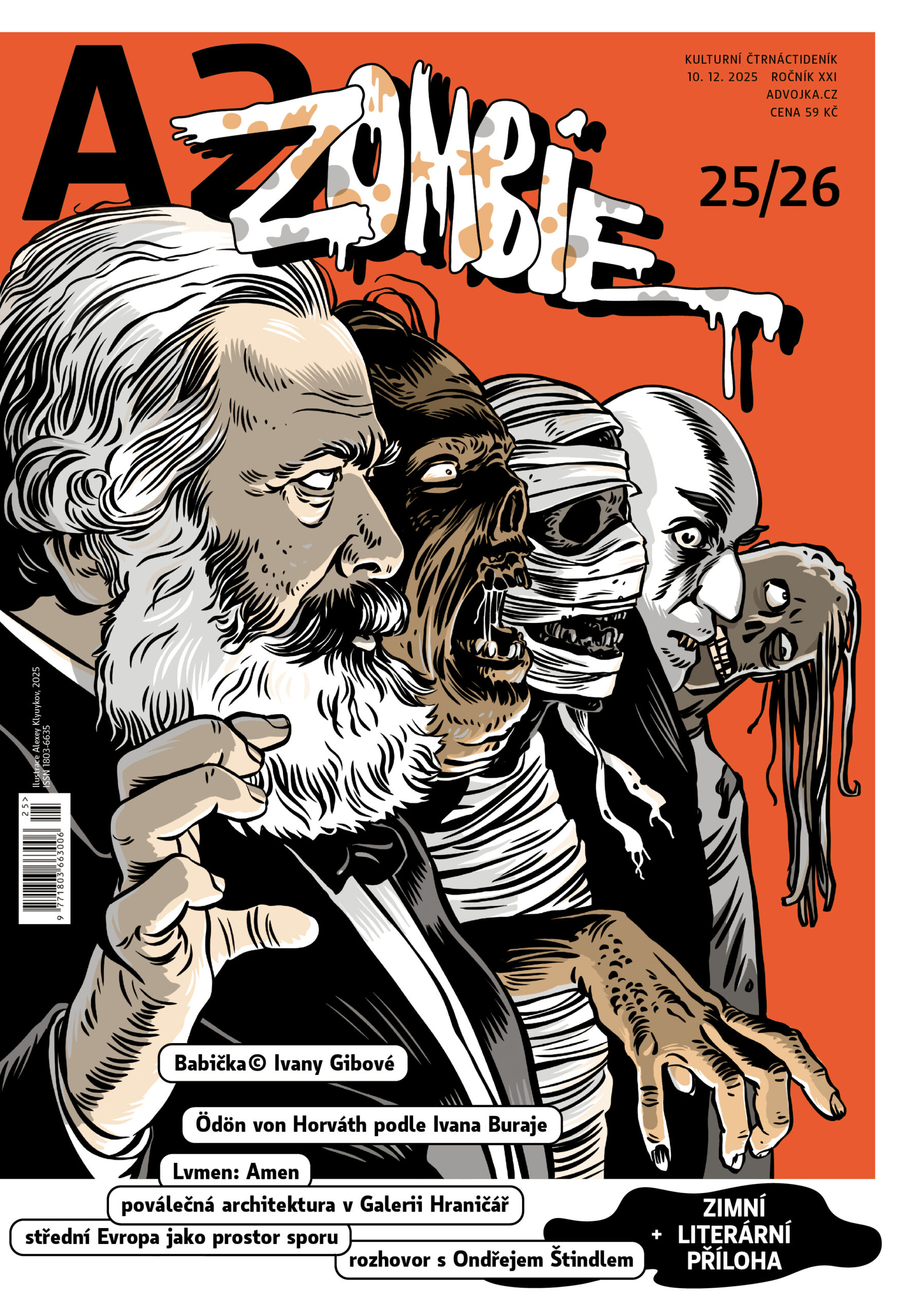What Will Endure?
Twenty-first-century Literary Canon
In the following text, American literary critic and author of thousands of book reviews reflects on the early stage of future literary canon of our era. The world literature of the new century still needs to be sorted, yet some recent books simply couldn’t be ignored.

It is easier to properly judge a book and its significance from some distance. We are dazzled and blinded by the new, and all the attendant attention. Wave after wave of new books (and their authors) are thrust to the forefront, briefly, glaringly more visible, and it is difficult to assess worth amidst all that overexposure. Yet most of every season’s critical darlings – often anointed before the critics, much less readers, have had a chance to adequately consider them – fade from memory as soon as they are out of that initial spotlight. Meanwhile, there are books that at first were met with only a muted critical and popular response and took decades until they were recognized as classics and were included in the canon, yet now are obvious parts of it – Moby-Dick or The Great Gatsby, for example. So how to judge which books of this century – so recent it can feel like the ink is hardly dry on their pages – already deserve to be included in our canon?
Sensation and Tradition
A certain literary quality and standard is expected of any text that might be considered. There have been immensely popular novels that have played a significant role in reshaping the contemporary book market, but while The Da Vinci Code (2003) and Stieg Larsson’s trilogy (2005–7) cannot be denied a place in any literary history of the beginning of this century, no one would argue for their inclusion in the canon; their reputation will presumably linger on only like that of books such as Eugène Sue's Les Mystères de Paris (1843), sensations of their time that bred lots of imitators but are, by any standards, not particularly good literature. As to the biggest work of recent times, the Harry Potter series (1997–2007), that too is a phenomenon that cannot be disregarded but, arguably not quite literary or adult enough, sits on the margins of the canon.
Present-day political, social, cultural conditions have an outsized influence on how we assess new fiction vis-à-vis the canon, but the immediacy of today’s context will fade with future generations, and it is difficult to judge from our perspective what will remain of the novels of our times. Best-of surveys and critics’ lists suggest some of the 21st-century titles that are currently widely considered to be contenders for any canon, but will those that deal more specifically with issues of our time, such as Chimamanda Ngozi Adichie’s Americanah (2013) and Zadie Smith’s White Teeth (2000), maintain their positions, or will novels with a more traditional general appeal, such as Ian McEwan’s Atonement (2001) or Elena Ferrante’s Neapolitan quartet (2011-14), be more lasting? I expect these four titles to continue to figure in any discussion of the 21st-century canon, though I am not sure any can stake an absolute claim to a place in it.
Preeminent Position of English
Changing political times and attitudes, and global conditions – political, economic, environmental – inevitably have an influence. A resurgent authoritarianism lends new weight to a work such a Philip Roth’s alternate history, The Plot Against America (2004), while Kazuo Ishiguro’s disturbing Never Let Me Go (2005) effectively addresses ethical issues that feel even more relevant today. Roth and Ishiguro both have a large body of significant work that might be considered for the canon, but looking to the nearer future, the general climate would seem to favor these to secure positions as canonical works. More dismayingly, the novels of Michel Houellebecq seem increasingly not just sensationalistic but prescient, and it appears only to be a question of which of the variations of his world-view will emerge as the most perspicacious and which corresponding title will claim a place in the canon.
Current trends towards increased insularity and nationalism will likely be reflected in an even stronger push towards narrower and more local versions of the canon, with a slim outer shell of ‘global literature’ – works by authors such as Orhan Pamuk, Salman Rushdie, Haruki Murakami, or David Mitchell. Slightly fantastical works, less tethered to specifics of time and place, may more easily find acceptance beyond otherwise less yielding national borders, and so novels such as Cloud Atlas (2004) and 1Q84 (2009–10) – benefitting also from being sweeping and grand (but also quirky) epics – are likely to continue to figure in the canon-discussion (though in Murakami’s case, 1Q84 may well be in competition with his earlier, twentieth-century works).
Translation is still a major hurdle in the spread of literature. The current preeminent position of English, in particular, is consequential. The American and British translation markets are catching up to those of other major languages, but are dominated by small, independent publishers, often limiting the reach of important work, certainly at least initially. Yet not just availability in English but also significant recognition of a work is a precondition for inclusion in the canon – giving more widely read works originally written in English a leg up, certainly in these early days of trying to put together a 21st-century canon. So fiction by authors such as Jonathan Franzen or Marilynne Robinson that might eventually come to feel as too narrowly American is, for now, prominent on canon-lists. Meanwhile, a flourishing Chinese literary scene and a resurgent Russian one, for example, have had such a limited impact abroad that, while there are authors producing works one suspects might find a place in the canon – Mikhail Shishkin, Yan Lianke, or Nobel-winning Mo Yan. Similarly, a whole new flood of Arabic fiction, much of it impressive, still needs to be sorted, with no texts standing out as obviously as Mahfouz’s The Cairo Trilogy (1956–7) or Abdul Rahman Munif’s Cities of Salt quintet (1984–9) did. (Yes, epic scale is definitely favored when it comes to the canonical…)
Just Wait and See
It is difficult for any work to establish itself as an indisputable part of the canon. In the past half century or so perhaps only Gabriel García Márquez’s One Hundred Years of Solitude (1967) and Salman Rushdie’s Midnight’s Children (1981) qualify, with works such as David Foster Wallace's Infinite Jest (1996), Georges Perec’s Life A User’s Manual (1978), or László Krasznahorkai’s Satantango (1985) already more debatable. From our vantage point, only a handful of works of fiction published in the last eighteen years seem, at this time, of similar stature. Karl Ove Knausgaard’s uneven, mammoth, six-volume My Struggle (2009–11), arguably (hopefully?) the apotheosis of autofiction, is one that seems impossible to ignore. A work such as Annie Ernaux’s The Years (2008), the culmination of her own decades-long project of similarly deeply personal and revealing writing, might in fact be finer literature, but Knausgaard’s work has, for now, proven simply far more overwhelming in its impact. The wide-ranging 2666 (2004) is the most exhaustive example of the versatile Roberto Bolaño’s great talents. Experimental and creative but still accessible enough to appeal to a larger audience, it is practically a quintessential canonical work. And Ngũgĩ wa Thiong'o Wizard of the Crow (2006) is the kind of grand fiction that shows the value of expanding the canon to include works from less familiar languages (Gikuyu, in this case) and still underappreciated literary cultures.
I suspect, however, that in the future those books from the early twenty-first century that dominate the canon will be ones we mostly have not yet taken proper notice of. They may already be around us, translated and available, but have not yet reached a critical mass of the right readers and reactions. As was the case for John Williams’s Stoner (1965) – acclaimed but only modestly successful when it first appeared, then finding a more receptive audience when it was locally revived some forty years after its initial publication before finally exploding on the international scene – conditions must be right and ripe. For the most part, we will just have to wait and see.
Author is a literary critic and founder of Complete Review.



